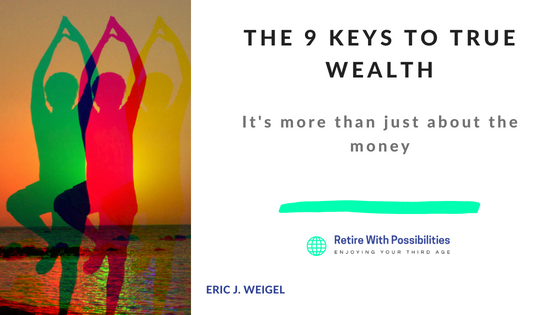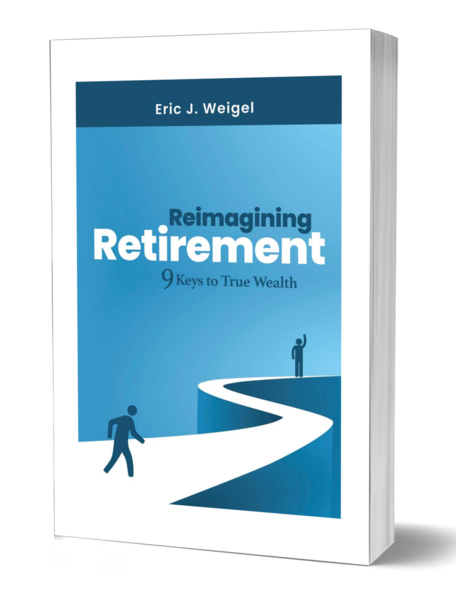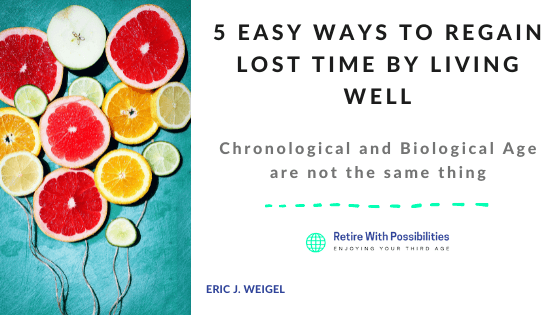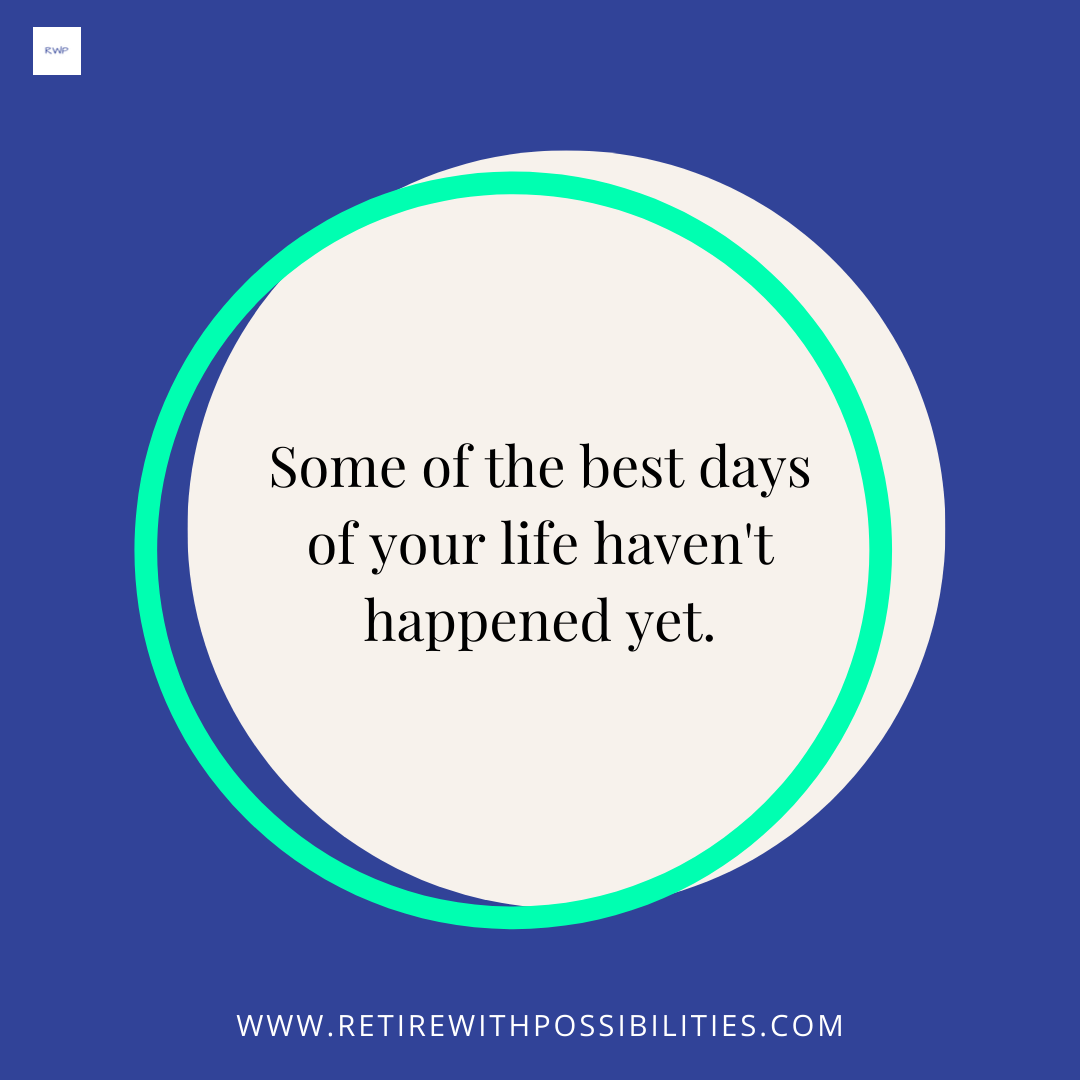Unleash Your Inner Wisdom With This One Surprisingly Simple Practice
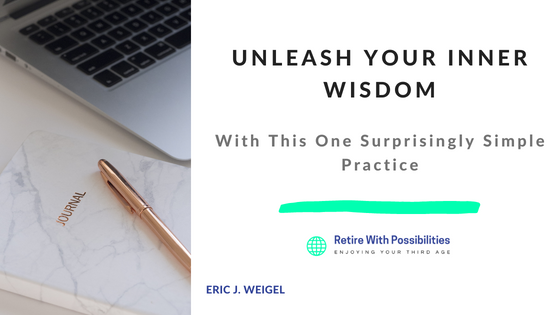
It's not my secret, of course, but the one surprisingly simple practice that will yield massive gains in your life (if you stick with it) involves nothing fancier than pen and paper.
I'm talking about journaling. That's right! Very old school, but you'll be surprised that many uber successful people consider journaling their secret weapon. More on that in a bit!
I was first exposed to journaling in 2018 taking the AMP masterclass of Dr. Benjamin Hardy. To be perfectly honest at first, I did not think much of it. I thought of journaling as being more for teenage girls, not for mature adults.
- Wouldn’t I just write the same thing over and over?
- What would I write about?
- What could I possibly gain by writing down my thoughts on paper?
It occurred to me that maybe I was in the wrong mastermind. After all, I wanted accountability and action, not pieces of paper with random ideas and thoughts. I wanted to roar like a lion not sit down like Anne Frank writing in my little book.
I thought that journaling was just another beatnik or far-out technique that would lead nowhere but in reality, what I have found after admittedly much trial and error over the last four years is that journaling has become an absolutely essential part of keeping me focused and clear headed.
Flannery O’Connor
-American Novelist
"I write because I don’t know what I think until I read what I say"
I never thought I would say this ...
What comes out of my pen is not some random gibberish but rather my deepest thought and feelings that are often so hard to verbalize when busy and distracted in everyday life. It’s hard to explain, but I think of journaling as a cheap form of therapy!
Journaling allows me to go quiet and figure things out. It forces me to question whatever beliefs I have on an issue that is bothering me or at the very least sucking lots of my energy. In addition, journaling offers insight and direction to moving forward in my life. As I said it’s like a self-administered form of cheap therapy. Tim Ferriss agrees with me!
I don’t think that I would have become a retirement advisor and coach if I did not journal. I could have just “retired” but there was something nagging at me that only when I put pen to paper did I realize that I wanted to do more with my life. I did not want the easy life of leisure that so many of my peers were pursuing. I wanted to still stretch and be involved in the world. But how? That took a while to figure out but journaling was the lynchpin to get the necessary clarity and sense of direction.
Not only have I gained clarity and a better sense of direction by journaling but I have also become more emotionally grounded. It’s hard to process your emotions when you’re getting pulled in a million directions. It’s nearly impossible to figure out your true feelings if you don’t set aside time and space to write them down. And that’s what journaling can do for you. It can allow you the safe space of writing really intimate stuff without having anybody question you or, even worse, judge you.
Journaling has been demonstrated to be a powerful tool in enhancing mental wellbeing. It is a means of self-reflection and expression that facilitates the process of gaining insight into one's thoughts, emotions, and behaviors. By engaging in journaling, individuals can become more mindful of themselves and their environment, thus allowing for more effective problem solving and decision making. Furthermore, journaling has been linked to improved emotional regulation through increased awareness of self and increased understanding of one's emotions.
The often broken journey from Resistance to Acceptance
I was not an original convert to the practice of journaling. I didn’t know what to write about. I didn’t know how to get started. I didn’t even know where I should write – in a leather-bound book, an open Word doc, or a simple notebook.
The possibilities appeared endless and I got stuck. For a while I procrastinated by getting lost in all of these options. I even asked my mastermind leader for help to which he simply responded, “Do whatever feels right to you”. Obvious, right?
I asked around and everybody had a different take. That didn’t help much but eventually I found my own method. I simple wrote in a basic notebook about anything that came to mind. Many days it was the same thoughts. Many days I felt like I was simply doing my “homework”. I sometimes felt like an outcast in my mastermind group.
- Was I the only one that was struggling to find my journaling style and voice?
- Why was I not a true believer?
- What was I missing?
And then it hit me. It was my belief that journaling was only for teenage girls that was holding me back.
The fact that day after day I wrote the same things down was not proof that journaling was a waste of time but rather that maybe there was a message right there staring at me that I did not want to deal with. Maybe there was a truth in my writing that I was reluctant to confront out of fear. Maybe there was an element of responsibility for my life that I would have rather left in my unconscious mind.
Why were these same questions and thoughts popping up every day? Over time I realized that the questions were actually shifting ever so slightly. They were becoming more and more specific as were my answers. My writing was becoming crisper until eventually the message became clear. And now I understood that that’s the whole point of journaling -to start in a maze of confusion and vagueness and little by little find that needle in the haystack that brings clarity and helps you move forward.
Did I develop this daily habit right away? Absolutely not. It took many tries, probably at least two years. I would journal for a couple of weeks, take a break and then go back to it. It was a lot of stop and go. It took me a while to figure out my own rhythm and style.
- How long should I journal for?
- What should I write about?
- Were certain topics off-limits?
- Should I write on my laptop, hard-bound journal or in a simple notebook?
- Should I write in full sentences or just jot down some blurbs and scribbles?
In the first couple of years, I kept at it, in all honesty, primarily because of my mastermind group. Pure, raw peer pressure and the fear of being found out as a non-believer!
That pressure kept me from totally falling off the wagon so it worked until I no longer needed the reminders. I eventually embraced journaling for purely selfish reasons. It worked for me and it became a key part of my morning routine.
Check out my fancy technology!

My low tech tools

Journaling will work for you too – if you stick with it
It worked for Marcus Aurelius during the days of the Roman Empire. In fact, his daily journal entries make up the contents of probably the most famous Stoic book of all time, Meditations.
Too dated for you? How about?
- Actor Brad Pitt who credits journaling with helping him deal with disappointment and addiction
- Comedian Jerry Seinfeld who journals every day to get new ideas
- Author and podcaster Hal Elrod who includes scribing (his word for journaling) in his Morning Miracle SAVERS
- Organizational guru Maria Kondo who journals every day to assess the progress she’s making on her goals. Same for actor Dwayne "The Rock" Johnson, technologist Bill Gates and Spanx founder Sarah Blakely.
- Speaker and motivational podcaster Mel Robbins who’s committed in 2023 to start a daily journaling practice
You must agree that the list of successful people that journal is impressive. There must be something to this practice! It sounds so simple, but will it work for me?
Still skeptical?
I get where you’re coming from.
You’ve tried every hack pitched by self-improvement gurus from cold showers in the morning to affirmations. You have tried but after a couple of weeks you lose interest. You don’t see the gain you expected. You have fallen in love with the next “shiny” object that you’re now convinced will be the key to massive results.
You’ve done this over and over again, right?
Like you, I’ve been there.
I tried a little bit of everything for so little to stick. But to my great surprise, journaling finally did stick but it took a while.
Here's what journaling has given me:
There are numerous other benefits to journaling but let me explain a bit more.
Benefit #1 – Enhanced sense of control and my choices
By the simple act of writing things down you can become more objective about what’s going on in your life. You’ll quickly realize that a lot is out of your control (such as a stock market crash, your health or a natural disaster) and that fretting over what could happen is a waste of time and energy.
Writing your worst fears down on paper will lead you conclude that in most cases, events are out of your control. What can you do? Is it worth worrying about something that you have no control over?
Rather, wouldn’t it make more sense to become laser focused on what you do control? By writing things down I have been able to in a sense get out of my own head by realizing that I only need to worry about what I can control. The rest is beyond me. Good or bad. Any difficult situation or problem is suddenly a lot more manageable. I can exert my choices over areas of my life that I can control.
As ridiculous as they may appear here are some examples of my journal ruminations on this topic of choice
- I can’t control a stock market crash, but I can control how much risk I’m taking in my portfolio
- I can’t control when I’ll die, but I can lead a lifestyle that improves my probability of living a long, healthy life
- I can’t control somebody else’s behavior, but I can choose to live with it and not let it bother me or leave the situation entirely
Journaling has allowed me to see more clearly the areas of my life where I do have a say.
Benefit #2 – Greater clarity of thought
We live in a dynamic, high-pressure world. A world full of “noise” and minimal “signal” as statisticians would say. It’s easy to go with the flow and simply react to what’s going on around. Finding clarity means identifying the “signal” in a sea of complexity and busyness.
You need clarity in your life in order to move forward. You need to understand who you want to become and how you want to live your life. As I write in my book, Reimagining Retirement, you need a Vision of your Future Self. Without that vision you cannot hope to lead an intentional life.
It’s amazing what putting pen to paper can do to extract your innermost thoughts. You’re not debating with a friend or foe. You’re just letting your writing flow and letting the chips fall where they may. It will take you several tries but eventually your written thoughts will result in clarity and your own truths. You’ll finally see that vision of your life that previously appeared grey and foggy.
christina baldwin
-author
"Journal writing is a voyage to the interior"
Benefit #3 – Assessing your beliefs
We all have our own beliefs about life. I’m not talking about values such as honesty and empathy but rather the set of assumptions we all use in our daily lives to guide our behavior. Beliefs are hidden from public view and many times we don’t even know what they are until we take the time to explore our innermost core.
Beliefs are often developed in childhood. For example, our beliefs about money are most likely developed in our childhood watching our parents. The interesting thing about beliefs is that they are often hidden even from ourselves. Journaling offers one way to little by little bring these beliefs to the surface.
Have you ever sat down and written down your foundational beliefs? Try it. You’ll probably find a lot about yourself but at first you will probably feel a bit disoriented and unsure what to write.
You know why? Because, in many cases you are harboring beliefs that are not true and are in fact holding you back. Harsh but most often true!
We like to think of ourselves as these super rational people dealing with everybody else’s quirks and randomness when in reality our own beliefs are driving our own behavior and many times we don’t even know what these beliefs are.
Yes, you could go to therapy but a more cost-effective way to get at the root of your beliefs is to quietly write them down day after day until you let go of any societal pressures and ideas of who you are and the truth finally emerges.
Only when you truly understand your beliefs can you face up to the task of assessing whether these beliefs are empowering or limiting you.
I have found journaling a very effective way to get to the bottom of your true beliefs. Sometimes just knowing what’s been holding you back is enough to give you the permission to move forward.
Benefit #4 – Greater emotional stability
Who doesn’t experience fear? Absolutely, nobody. We all have our fears – some deserved and many others totally unfounded. Most times our fears don’t materialize but we as humans have a tendency to obsess over what could go wrong even if the probability is infinitely small, or totally out of our control.
Our reptilian brain has a way of playing tricks on us. Cruel, isn’t it but it keeps happening. We will always have our fears, but we can choose to confront them before we sink into a massive energy sinkhole. I have found journaling about my fears a great way to stop catastrophizing about the future.
Here are a couple of examples:
I go through patches where I wake up feeling anxious. Nothing terrible but still unsettling. I often don’t even know why I’m feeling this way until I journal about it. My anxiety usually revolves around money even though under most scenarios my wife and I are going to be fine. For me, at least, thinking about my anxiety does not make the feeling go away. Only by writing my feelings down on paper do I realize how silly I’m being.
Other times, I wake up thinking about my days as a mutual fund portfolio manager and instantly get a little jealous of friends of mine still in the “game”. My envy is usually short lived ounce I scribble these thoughts on paper and realize that that was my past for which I’m grateful for but it has nothing to do with my current vision of who I am and the life I want to lead. I love my friends still in the “game” but I’ve moved on to a different set of expectations for my life. I have journaling to thank for getting me out of the envy trap! It usually works.
martina navratilova
-all-time tennis great
"Keeping a journal of what’s going on in your life is a good way to help you distill what’s important and what’s not"
Benefit #5 – A reminder of what's important
It’s the time of year when people typically set goals for the new year. I bet that by April Fool’s Day not only have most people not followed through with their goals but few even remember what they were in the first place. Just look at the rows of unused treadmills at your gym or how people have totally forgotten about their intention behind “Dry January.”
It’s really interesting how easy it is to forget one’s goals when busy and in the flow of everyday life. It’s happened to me and I think of myself as being pretty focused. Sure, I do remember some of my goals but I have forgotten that a plan without action is just a dream.
By writing your goals down and focusing on your progress you’re likely to increase your odds of success. That daily reminder has been shown to be invaluable. It’s amazing how often we forget what’s important as we get busy with life. There is always tomorrow, right? We are as noted business coach Marshall Goldsmith says “better planners than doers.”
Journaling offers a way for us to reaffirm our goals and not let busyness bury our long-term dreams in the graveyard of best intentions.
jim rohn
-motivational coach
"Start from wherever you are and with whatever you've got"
How do I get started?
By now, hopefully, you can see why among others Oprah, the “Rock” and Jerry Seinfeld are committed daily journal writers. I believe that everybody could benefit from journaling, but getting started and sustaining that commitment is not always easy.
If you’re new to journaling or have not been able to incorporate the practice into your daily living you need to develop the habit one day at a time until the benefits become apparent and journaling becomes as automatic as brushing your teeth after a big meal.
Developing a journaling practice is no different from starting any other habit. Two great references for people interested in the topic are Tiny Habits by Stanford Professor Dr. BJ Fogg, and Atomic Habits by James Clear. Distilling from their wisdom and my own experience developing a journaling practice here are some tips you might find useful.
Tip #1 – Don’t fret over picking the right journal or writing tool. Just get started with whatever feels right to you. If you have to wait to get the perfect journal from Amazon, you’re procrastinating. I use a simple composition book like the one kids use in school.
Tip #2 – Just get started and start small. There is no better time than now. It’s not going to be easier tomorrow. Take that first step. Maybe give it 5 minutes on Day 1 and see how it feels. Most people do not spend more than 10 minutes journaling. See how many days you can keep the streak going. That’s a trick that Jerry Seinfeld used during his early days as an up and rising comedian.
Tip #3 – There is no perfect or right way to journal so come up with your own style. Full sentences, perfect grammar, bullet points, mind maps -it does not matter. Make journaling your own experience with your own way of filtering your thoughts. I use a lot of bullets and diagrams with the occasional mind map to jot down my thoughts. It looks really messy but it works for me.
Tip #4 – Journal in a quiet place where you can really focus on your thoughts and pick a time. Most people that I know prefer to journal in the early morning before the busyness of daily living sets in. Pick your spot and time. Psychologist and author Dr. Ben Hardy journals in his car (he’s got 6 kids so now you know why his car is sacred) in the wee hours of the morning before he heads out to the gym.
Tip #5 – Focus on one or two areas of your life that are challenging you. Is it relationship issues that require your attention? Is it something related to your work? Is it something in your life that you can’t quite understand and requires self-examination? Is it related to your fears and anxiety or other uncomfortable emotions such as jealousy? Is it a focus on your health? You can’t possibly address everything at once. Remember, start small and everyday go deeper and deeper until you find clarity and a way forward.
Tip #6 – Bonus Prompts to jump-start your engine
- What’s worrying me today? Do I understand where these worries are coming from? Do I need to really worry?
- What kind of life do I envision for myself? In 12 months, 5 years, ...
- What are my true beliefs in life? Are these beliefs true?
- Am I living up to my potential? What’s holding me back from achieving my goals?
- What are two or three things that I could change this year to find greater happiness? Why am I not taking action?
- What could I do to become more persistent and resilient?
- What are two or three things in my life that I need to deal with urgently?
- What am I grateful for?
- What brings me joy? How can I get more of that?
- What am I really good at?
robin sharma
-motivational coach
"The starting point of discovering who you are, your gifts, your talents, your dreams, is being comfortable with yourself. Spend time alone. Write in a journal"

